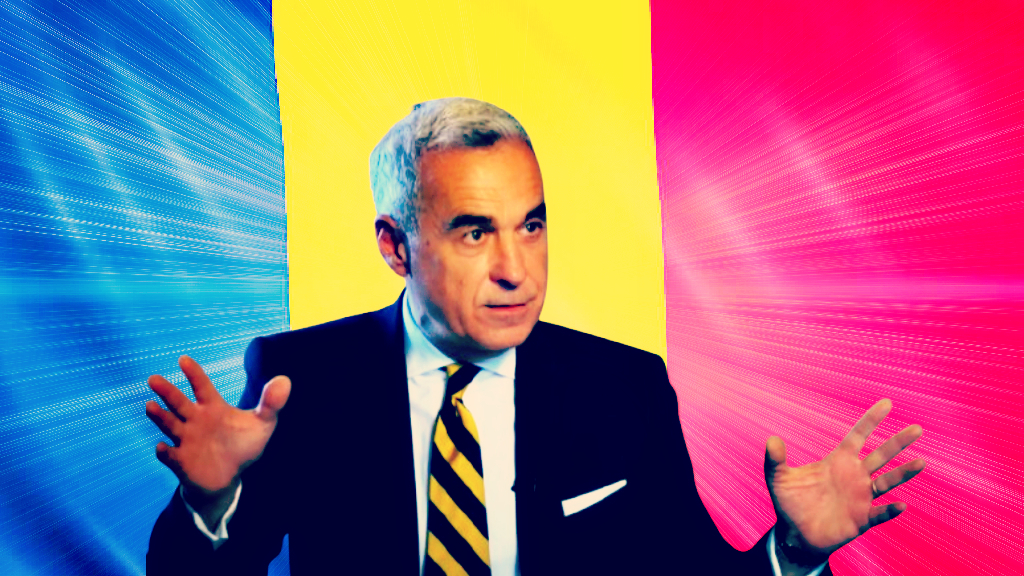The political atmosphere in Romania has become increasingly charged as the country approaches a pivotal presidential runoff election. The unexpected rise of Calin Georgescu, a far-right candidate known for his criticism of global institutions like NATO, the EU, and the UN, has triggered alarm among European globalists. Georgescu’s platform, which is steeped in nationalism and religious conservatism, advocates a Romania-first policy while opposing practices such as abortion and gay marriage. His potential victory over pro-European establishment candidate Elena Lasconi is perceived as a threat to the interests of global elites, especially in light of an electoral backdrop marked by widespread distrust in state institutions following economic crises and the repercussions of Russia’s invasion of Ukraine. With initial vote confirmations bolstering his momentum, Georgescu’s support is now projected at nearly 60%, positioning him as a frontrunner.
Georgescu’s campaign capitalizes on the disillusionment of voters, particularly regarding an entrenched political class perceived as corrupt and beholden to foreign interests. By framing himself as an outsider and a defender of national dignity, he has resonated strongly with the public. His assertion that Romania has succumbed to foreign influences is a rallying cry for those frustrated by the perceived ineffectiveness of mainstream political parties. The implications of a Georgescu presidency are profound; analysts warn that it would shift Romanian politics towards a more far-right orientation, aligning the nation with similarly inclined states in Central and Eastern Europe such as Hungary, Slovakia, and Austria.
As president, Georgescu would gain significant powers, including control over the armed forces and representation in international forums, especially concerning military and defense spending. His previous comments against military aid to Ukraine and continued grain exports showcase a foreign policy stance that diverges sharply from established Western alignment. Such positions position him as a formidable adversary against established globalist norms, prompting widespread trepidation among elites who view him as an existential threat to their interests. The fear is not merely confined to Romania but extends to the wider European landscape, where the rise of nationalist and populist movements is reshaping political dynamics.
In a series of statements that lack conventional diplomatic decorum, Georgescu has voiced allegations regarding the United Nations and global oligarchs. He suggests that powerful elite interests manipulate global governance to further agendas that undermine national sovereignty and social values. Georgescu’s controversial remarks include claims that the elite control institutions like the UN and that they are complicit in serious crimes, which he alleges include human trafficking and systemic corruption. This narrative taps into a growing sentiment among certain voter demographics that view globalist institutions as out of touch with national interests and ordinary citizens’ concerns.
Moreover, Georgescu articulates a strong critique of climate change initiatives, labeling them a fraud and suggesting that the focus on climate change is a strategy employed by elites to control resources and populations. His dissatisfaction with both the UN and organizations like the Club of Rome reflects a broader skepticism towards international climate actions that are perceived as undermining traditional values and national resources. By positioning himself against the prevailing discourse surrounding climate urgency, he solidifies his standing among voters who harbor doubts about mainstream environmental policies. This rhetoric serves to bolster his persona as a staunch defender of Romanian identity against an alleged globalist onslaught.
As the election nears, there is growing anticipation surrounding Georgescu’s potential victory, emboldening his supporters but inducing panic within the realms of European political elites. His presidency could herald a significant departure from traditional Romanian foreign policy and reflect a broader trend across Europe toward nationalist, far-right movements. As political analysts gauge the ramifications of such a shift, it is clear that Georgescu’s run for the presidency serves not only as a reflection of national sentiment but also as an indicator of how global political upheavals can reshape local landscapes. The upcoming vote stands as a litmus test for the resilience of the Eurocentric political framework in the face of rising populism and the rejection of established norms.

